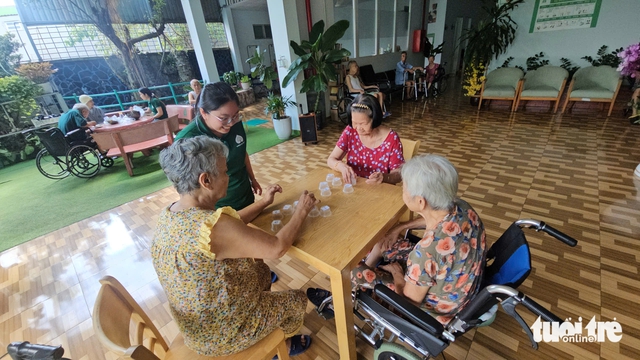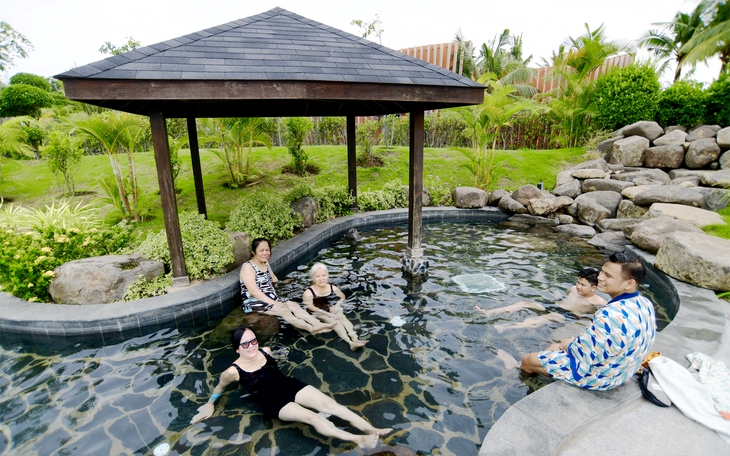
Vietnam holds potential for retirement, wellness tourism
As Vietnam’s middle class grows rapidly, the country should explore the potential of combining elderly care with wellness tourism to meet rising demand for quality retirement services.

Elderly residents play games at Tam An Nursing Home in Linh Xuan Ward, Ho Chi Minh City. Photo: T.A
Most nursing homes in Vietnam currently provide only basic care, but with 1.5 million people joining the middle class each year, expectations are shifting.
Wealthier seniors increasingly seek comfortable facilities that offer healthcare, therapy, leisure, and spiritual activities.
Global tourism markets for retirees have been thriving.
Many Americans and Europeans choose long-term stays abroad, while Thailand, Malaysia, and Singapore have developed retirement visas linked to medical tourism.
Experts say Vietnam has strong potential to compete in this sector but it must overcome both legal and infrastructure gaps.
Vietnam’s national strategy on the elderly in the 2021-30 period highlights the need to expand health services, build nursing centers, and encourage private investment in long-term care services, as well as to create favorable conditions for the elderly to engage in cultural, tourism, and rehabilitation activities.
However, most nursing homes nationwide remain small-scale, lacking integrated medical and leisure services.
With global wellness tourism valued at US$105 billion in 2022 and projected to triple by 2030, Vietnam could become competitive, especially as its healthcare costs are only 30-50 percent of those in developed nations.
Ho Chi Minh City’s advantages
The city is Vietnam’s leading medical hub, with top hospitals, experienced doctors, and an active private healthcare sector.
It also serves as a gateway to tourism, with easy access to beach destinations like Can Gio, Vung Tau, and Con Dao.
Experts envision an ecosystem of premium nursing homes, rehabilitation centers, and seaside resorts offering services from yoga and meditation to herbal therapy and hot springs.
Digital health tools such as telemedicine, AI, and big data could provide reassurance to both domestic and international seniors, even after they return home.
Barriers to overcome
Vietnam faces a shortfall of geriatric specialists and internationally certified caregivers, while the legal framework for private eldercare services is unclear.
Public trust in local medical facilities is still low, with many opting for treatment abroad.
Competition from established players such as Singapore and Thailand, which have retirement visas and strong branding, is also significant.
Dual benefit
If successful, wellness retirement tourism could become a new growth engine.
Economically, it would attract long-term international clients and generate foreign currency.
Socially, it would give Vietnamese seniors more care options while easing pressure on families and the public health system.
Experts suggest Ho Chi Minh City adopt a long-term strategy, including zoning land for retirement projects, creating incentives through public-private partnerships, and drafting transparent regulations.
Building a skilled workforce including doctors, caregivers, and bilingual staff will also be crucial, alongside active international promotion.
With the right policies and investment, Ho Chi Minh City could position itself as a leading hub for retirement wellness in Asia, boosting both healthcare and tourism while enhancing Vietnam’s image as a safe, friendly destination for seniors.
Minh Duy - Dang Thi Thuy Diem / Tuoi Tre News
Link nội dung: https://news.tuoitre.vn/vietnam-holds-potential-for-retirement-wellness-tourism-103250909145127062.htm
